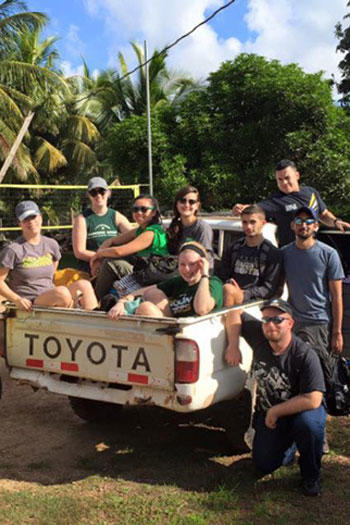Systems Engineering and Operations Research lets you specialize while gaining the flexibility to work in a variety of fields. You'll learn every aspect of a project from start to finish.
Major in the 'People-Oriented' Engineering Field
Mason's Systems Engineering and Operations Research programs are interdisciplinary, drawing from such areas as:
-
Engineering.
-
Computer Science.
-
Operations research.
-
Mathematics.
-
Human factors.
-
Economics.
You can earn a BS in Systems and Industrial Engineering as an undergraduate; as a graduate student, you can select from three masters’ programs: Systems Engineering; Operations Research; and Data Analytics Engineering, with a concentration in Predictive Analytics.
You can also pursue a PhD in Systems Engineering and Operations Research.
Each program stresses different aspects of systems design.

As a SEOR major, you could join Mason's chapter of the Engineers for International Development. Some members, such as these Mason students in Nicaragua, travel to other nations to help design, develop and implement sustainable engineering projects. Put your talents to use while helping others.
Bringing a Global Perspective to Complex Challenges
Core courses unite these diverse threads to provide a global understanding of how individual engineering disciplines fit into the development of large, complex systems and how mathematical and computer modeling help inform the processes you'll study.
We stress teamwork, collaborative learning, analytical skills, practical problem solving, and oral and written communication.
| Our goal is to produce graduates who can: | |
|---|---|
|
Apply critical thinking, quantitative reasoning, and principles to projects. |
Apply systems engineering and operations research methods, processes, models, and tools. |
|
Work effectively as a member of multi-disciplinary teams. |
Behave professionally, ethically, and responsibly. |
|
Communicate effectively. |
We also establish a foundation for life-long learning. You'll be inspired to improve your skills and learn new techniques throughout your career, putting you a step ahead of your peers.

You won't spend all your time in the classroom. Engineering students from all departments conduct research, create projects, and get feedback at such events as the Louis Stokes Alliance for Minority Participation Symposium.
